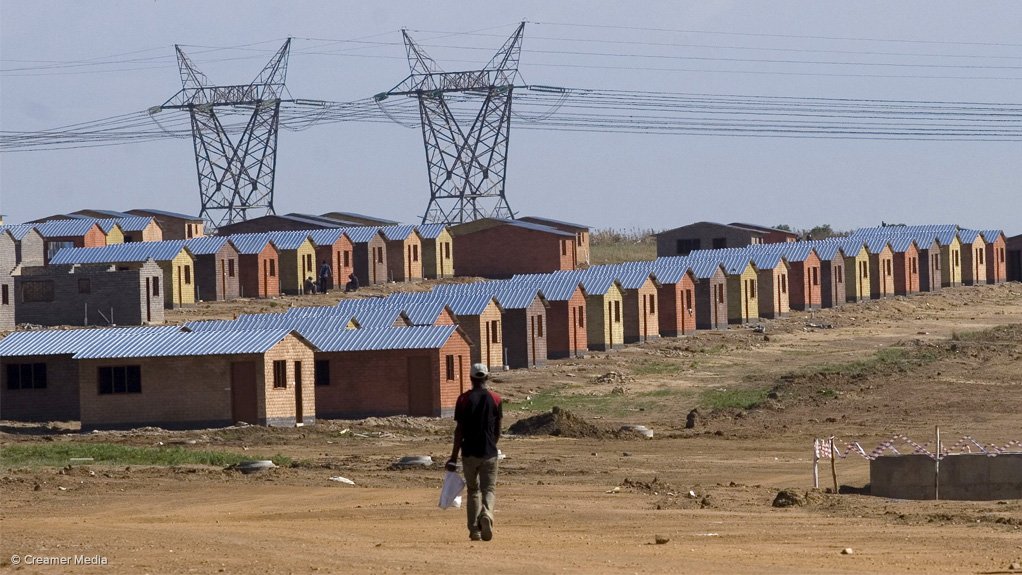Having rolled-out 67 000 smart meters across eight pilot municipalities in 2024/25 as part of an effort to improve revenue management at municipalities that owe Eskom billions in outstanding arear debt, the National Treasury reports that more than 77 780 such meters are expected to be installed across 11 municipalities this year.
It was reported earlier in 2025 that municipality arear debt owed to Eskom had breached the R100-billion mark.
Deputy director-general for intergovernmental relations Ogalaletseng Gaarekwe reports that the aim is to install 250 000 meters over a three-year horizon to 2027/28, with indirect grant funding of R2-billion having been approved for the programme.
The 19 municipalities currently accredited for the smart-meter scheme are drawn from the 71 municipalities that are also participating in a separate debt-relief initiative; one that enables them to write off legacy debt owed to Eskom by meeting various conditions, including a ringfencing of payments owed to the utility and keeping their current accounts up to date.
The first eight municipalities selected for the R500-million smart-meter pilot in 2024/25, were among those with the largest outstanding debts owing to Eskom, and included Bela-Bela, Dihlabeng, Emalahleni, Kgetlengrivier, Makana, Modimolle-Mookgophong, Naledi, and Sol Plaatje.
MUNICIPALITIES IN FOCUS
Ten of the second cohort have been drawn from the best performers in meeting the conditions of the debt-relief programme, while one is under national intervention, and they include Amahlathi, Cederberg, Dawid Kruiper, Endumeni, Enoch Mgijima, Kannaland, Mogale City, Matzikama, Ramotshere Moiloa, Raymond Mhlaba, and Ubuntu.
No metropolitan councils have been included but National Treasury local government budget analysis director Sadesh Ramjathan reports that such councils are entitled to access the service providers selected under its transversal tender for smart meters, known as RT-29, should they have funding to do so.
The service providers selected under RT-29, which was overseen by the National Treasury’s chief procurement officer in 2023, include African Metering Solutions, Cigicell, Conlog, Isandiso, Landis + Gyr, MTN and Vodacom.
These service providers are installing accredited meters that are manufactured locally and, while electricity metering is being emphasised, the RT-29 transversal tender also includes smart water meters.
Some R650-million has been set aside for 2025/26, R800-million for 2026/27 and R836-million for 2027/28.
None of the municipalities receive funding directly for the smart meters, with the selected service providers being paid only once there is evidence that the meters have been installed and fully integrated into the beneficiary municipality’s revenue management system.
Replicas of these municipal back-office revenue management systems have been created at a monitoring centre housed at the South African National Energy Development Institute, or Sanedi, which has also been appointed as the project manager for the programme.
EARLY ANALYSIS POSITIVE
Ramjathan says it is premature to provide firm information on whether municipalities where smart meters have been installed are meeting the objectives of improved revenue management, higher revenues and reduced arrear debt owing to Eskom.
However, he reports that the initial analysis arising from two municipalities – Bela-Bela and Sol Plaatje – is promising.
Adjustments have also been made to the way implementation takes place since the pilot, with a far greater emphasis being given to higher levels of community engagement ahead of any actual installations taking place.
This, in an effort to persuade those showing resistance to the meters that the technology is not simply about recovering higher revenues, but also includes customer benefits such as an improved service, greater billing accuracy and transparency, with customers able to monitor their consumption in real time on their cell phones.
The smart meters are also bidirectional, which theoretically enables customers to feed back into the grid should they have solar generation. However, this is only available where municipalities have clear policies and tariffs in place for such activities.
Ramjathan reports that there has also been a shift from the initial focus placed on single-phase residential customers, to larger electricity customers, including those with three-phase and current transformer connections. Indigent areas are not being targeted for the current roll-out.
Whether the scheme is extended beyond the R2-billion funding envelope and for a longer period will depend on whether the results of the current phases prove that smart metering is improving the financial sustainability of local municipalities, he adds.
However, EE Business Intelligence MD Chris Yelland expressed reservations about whether there was a technology “silver bullet” for solving the Eskom arrear debt crisis, which he said involved deep social, economic, affordability and criminality issues.
“It’s possible, though expensive, to install 15-million-plus smart meters, but it does not solve the meter tampering, meter bypassing and payment fraud issues.
“A holistic approach is needed on an ongoing basis, and forever, that addresses affordability and a monitoring of tampered/bypassed meters,” he said.
This would necessarily include regular on-the-ground checks, the removal of bypassing wires and illegal connections, the fining of offending customers, and the charging and prosecuting of repeat offenders.
“Unless all this is in place, disconnections or removal of bypassed meters and illegal connections are simply reinstated and life goes on,” Yelland warns.
EMAIL THIS ARTICLE SAVE THIS ARTICLE ARTICLE ENQUIRY FEEDBACK
To subscribe email subscriptions@creamermedia.co.za or click here
To advertise email advertising@creamermedia.co.za or click here











